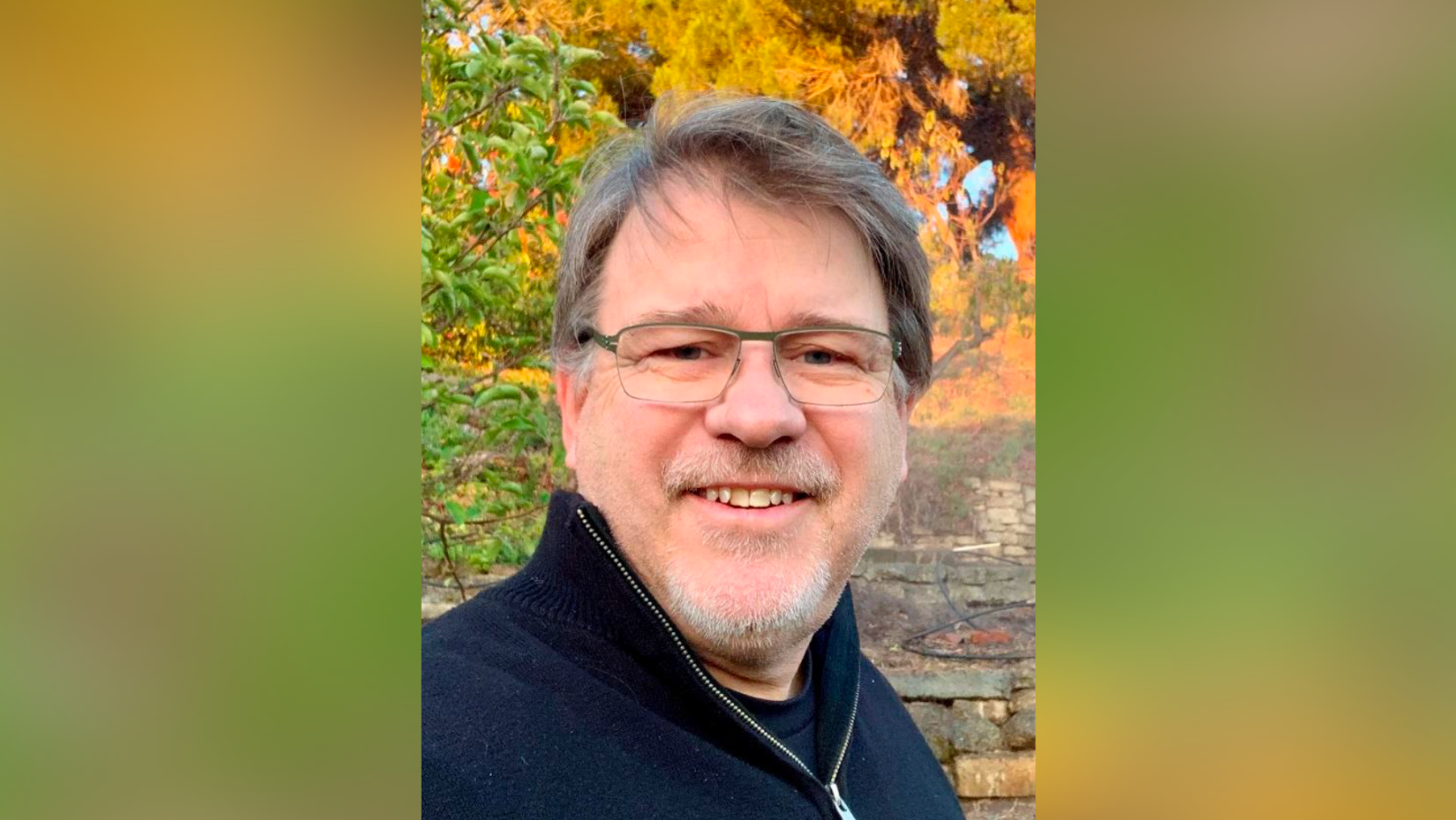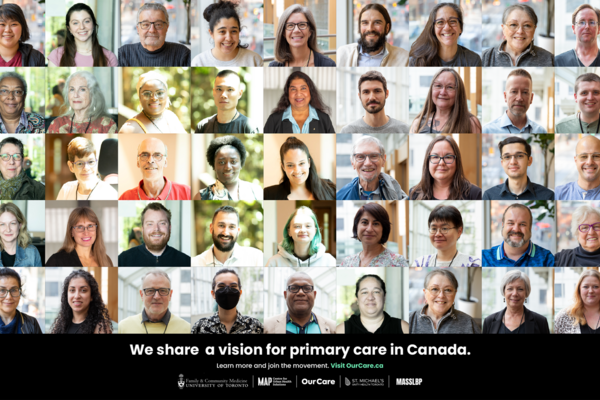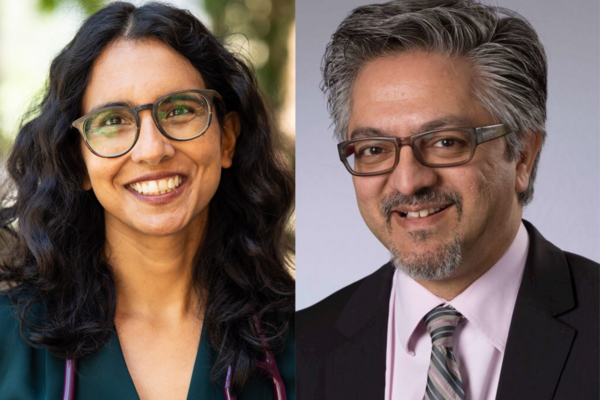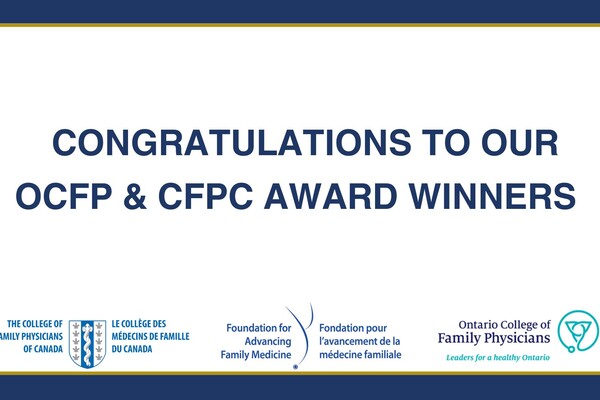Never Say Outreach: A Conversation with Visiting Professor Dr. Jack Westfall

The Department of Family and Community Medicine (DFCM) has welcomed a Visiting Professor to share expertise, experience, and help us think about the department’s role in our communities.
Dr. John Westfall, or Jack as he prefers, is a family physician with over 25 years of experience in rural community medicine and practice-based research across the state of Colorado, USA, and health policymaking at a national level.
We had the opportunity to chat with Jack about his career and how family doctors, and our department, can deepen our connections with the patients and communities we serve.
Q: Tell us a bit about yourself and your role as a Visiting Professor.
A: I am a family physician and researcher and have been for over 25 years. Much of that has been at the University of Colorado, in a variety of capacities all related to the core values and characteristics of family medicine. I’ve practiced rural family medicine in a small town in eastern Colorado, about 100 miles from Denver, where we started a practice-based research network. That led me into doing rural health throughout the university and community engagement for their research section, and subsequently public health agency work in California and health policy in Washington, DC. Always with a focus on community.
As a result of that, I had the opportunity to participate as an external advisor on the Department of Family and Community Medicine’s strategic plan, which – in my mind – is one of the most remarkable strategic plans I've ever seen. Most strategic plans at universities really focus on reputation, but this is not about reputation, it's about resources. It's not about competition, it's about community. It's serving as a bi-directional idea generator, recognizing that ideas may come from the community, just like ideas come from researchers and scientists.
When Dr. Martin, Department Chair, asked if I might like to continue in a similar role as a visiting professor, I jumped at the chance. I’m here to learn and share my 25 years of experience, particularly in community engagement, relationship building, and community-based research.
In reality, the success of a university or department is integrally connected to community success. So, a successful department is one that is embedded, if not physically then emotionally and spiritually in the community.
To my mind, universities are often that bright light on the hill, but they must also be a resource, a partner, and a co-learner. Universities produce lots of cool ideas and discoveries, but their work often stops at the edge of the campus. It really requires diligent work to move those discoveries and new care models out into the community to benefit practices and patients. In reality, the success of a university or department is integrally connected to community success. So, a successful department is one that is embedded, if not physically then emotionally and spiritually in the community.
Those are some of the conversations we’re having, how does the Department of Family and Community Medicine build relationships in the community and serve as a resource so that both can thrive.
Q: You mentioned that you helped create a practice-based research network in Colorado, the High Plains Research Network. Could you tell us more about that?
A: The High Plains Research Network (HPRN) started with a bunch of phone calls, and a bunch of road trips out to practices in rural Colorado. We were driving 100 miles, that's what, 150 kilometers, to meet with some clinics, some family doctors, and their staff. And drive back.
It was a group of clinicians who wanted to ask and answer some questions about the care that they were providing, because most of the research 25 years ago was being done at the academic medical center and then it couldn't get translated into actual practice.
And so, the clinicians were like, well, how do we show that we're doing a good job? How do we get better at our jobs? How do we do research on the questions that come up in our practice?
Now, the HPRN includes all the practices in the 16 counties of the region, about 150 physicians, nurse practitioners and physician assistants (PAs), 16 small critical access hospitals, nursing homes, pharmacies, schools and community colleges, public health agencies, and community members.
We always valued not just doing research in rural Colorado, but with the people of rural Colorado, both the clinicians, the practices, and the community members. We have a robust community advisory council of farmers, ranchers, and schoolteachers who lead and guide all the research from start to finish, including co-authoring papers, and presenting at local, state, national and international meetings.
When we worked in practices, we didn't just work with the physician. We did something we call SOuND team training (Shared Onsite kNowledge Dissemination). So, when we would go out and talk about asthma, we would invite the physicians and the nurse practitioners and the PAs, so the people who could prescribe medicine, but would also invite the nursing staff and the medical assistants, the front and the back office. Having them with a basic understanding of the condition, in this case asthma, infuses more knowledge into the community. And that team training was crucial because sometimes physicians get busy and having other team members who understand what we are trying to achieve can be a massive help.
Q: Was setting up the community involvement straightforward? How did you get people involved, especially those who might not normally be interested?
A: This is the short answer: You invite some people to hang out, you go out and hang out with them, you listen to them, have a meal with them, listen to them again and you reflect back, and you act on what they say.
An all-too-common worst case is when they tell you stuff, the researchers just walk away. Did I talk about listening? And doing. Because of the skills and resources the University team bring, we all do something together. They get it, and then they see action.
When I was in High Plains, we invited a couple to join our community advisory council – Connie and Gary. Gary was a schoolteacher who taught agriculture at the high school, and they had a farm. When we invited them, I drove three hours to meet them and sit at their kitchen table. We talked about my vision and the healthcare things they were worried about, and they agreed to come to the first meeting. Then they came to the second. And about the third meeting, we were starting to talk about rules of engagement and ownership of data and protocols.
As long as this work helps my community and comes back to my community, I will show up. But the minute this becomes about you, or the medical school, or some publication, I'm out of here.”
Finally, Gary stood up, a 65-year-old farmer, crossed his arms and said, “Here's the deal, Westfall. As long as this work helps my community and comes back to my community, I will show up. But the minute this becomes about you, or the medical school, or some publication, I'm out of here.”
And that was it, we committed to the Gary Haynes ethic of the work – it has to impact them personally, their community and their region. And then they'll keep showing up. And all of them have continued to show up.
Q: It sounds like outreach and transparency have been important for building your network…
A: Oh, I'm gonna jump in here because you used one of my trigger words: Outreach. Our community members have told us, "You know, Jack, everyone wants to do outreach”. But essentially, that's extractive - you reach out and take something. And as a community we don't want you to reach out and take something, we want you to join us. So rather than outreach, it really is engagement and co-learning.
I don't think anybody means anything bad when they say outreach, but in the communities I've worked with, it reminds them of their past experiences. People who did ‘outreach’ come and go, helicopter in, helicopter out, grab something, grab data, and then boom, gone! And that’s not how you build community and make real change.
Q: With 25 years of experience, what would you say to a medical student who is considering family medicine?
A: One of the things that I would want medical students to know is that the work of a family doctor is a team sport, but at its core, it's about relationships with patients. Relationships are one of the core values of not just the department, but of the practice of family medicine.
When somebody thinks about a doctor, they think of a family doctor. The person that you see when you're a kid and you're sick. The person who gives you your shots. The person that you see for your physical, or who your parents drag you to when you have mono and won't get out of bed. The person you see for your arthritis or mental health issues.
Of course, we don’t necessarily provide all the care, but they come to us first, we make that diagnosis. We have this intellectual diagnostic prowess, taking undifferentiated symptoms and making sense of them, and then managing and protecting the patient, making sure they get to the right place for the right care. But we don’t stop there, we don’t just pass them over, they come back to us, and we continue to help them and provide the care they need.
~
To learn more about DFCM’s work in community engagement:
News



